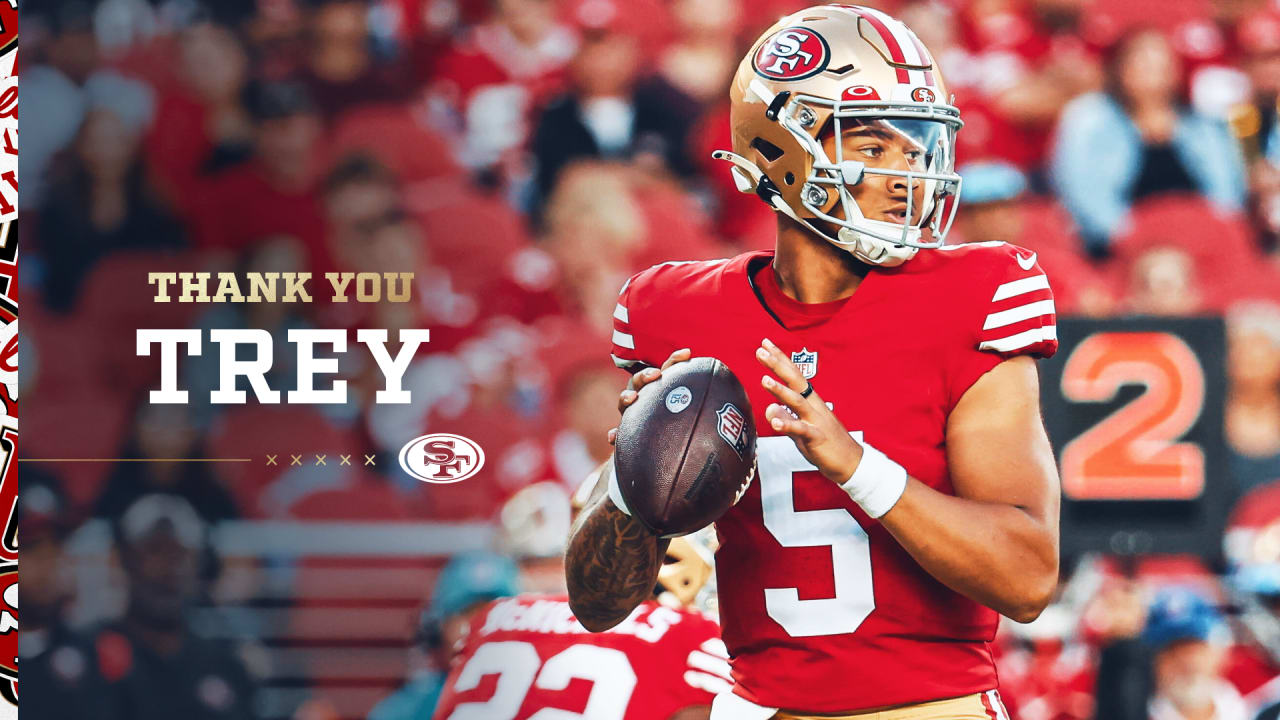
If Trey Lance were to announce his departure from the San Francisco 49ers, it would mark a significant moment in both his career and the franchise’s future.
Lance, who was selected third overall in the 2021 NFL Draft, arrived with high expectations as a dual-threat quarterback with immense potential. However, his journey has been marked by challenges, including injuries and competition for the starting position.
Lance’s announcement would likely generate a mix of reactions among fans, teammates, and analysts. Initially, there might be shock, especially given his youth and the potential he displayed in college at North Dakota State. He was viewed as a player who could transform the 49ers’ offense with his ability to make plays both through the air and on the ground. Fans would reminisce about his highlights, including his powerful arm, athleticism, and the flashes of brilliance he showcased during his limited playing time.
The context of his departure would be crucial. If he were leaving for another team, it might indicate a desire for a fresh start and a chance to become a starting quarterback elsewhere. Given the competitive nature of the NFL, many quarterbacks have thrived after moving to new environments. Lance might believe that a change could reignite his career and provide him the opportunity to develop as a starter without the pressures that accompanied being a top draft pick in San Francisco.
On the other hand, if his departure were due to other reasons—such as a retirement announcement or stepping away for personal reasons—it would signal a deep reflection on his career. This would bring attention to the mental and physical toll that professional sports can take on young athletes. In recent years, the conversation around player mental health has gained prominence, and Lance’s decision could spark important discussions about the support systems in place for athletes navigating the highs and lows of their careers.
From a strategic standpoint, Lance’s departure would lead the 49ers to reevaluate their quarterback situation. The team already has established players like Brock Purdy, who emerged as a strong performer following Lance’s injury, and a potential competition for the starting role would ensue. The front office might need to consider whether to pursue another quarterback through the draft or free agency or continue developing their existing talent.
Lance’s legacy in San Francisco, though short, would still be noteworthy. He would be remembered as a player who, despite facing setbacks, showed flashes of brilliance. His ability to adapt and learn from his experiences would be emphasized, as well as the challenges of transitioning from college football to the NFL.
Fans would reflect on the excitement he brought during his early days with the team, including his first starts and the hope that surrounded his selection as a franchise quarterback. The narrative surrounding his departure would also lead to discussions about the pressures of living up to expectations as a high draft pick in a storied franchise.
In conclusion, Trey Lance’s announcement of his departure would be a moment filled with mixed emotions. While it could represent a new beginning for him, it would also mark a pivotal change for the 49ers as they navigate the future of their quarterback position. As the team moves forward, Lance’s journey will serve as a reminder of the unpredictable nature of professional sports and the importance of resilience in the face of adversity.


Leave a Reply